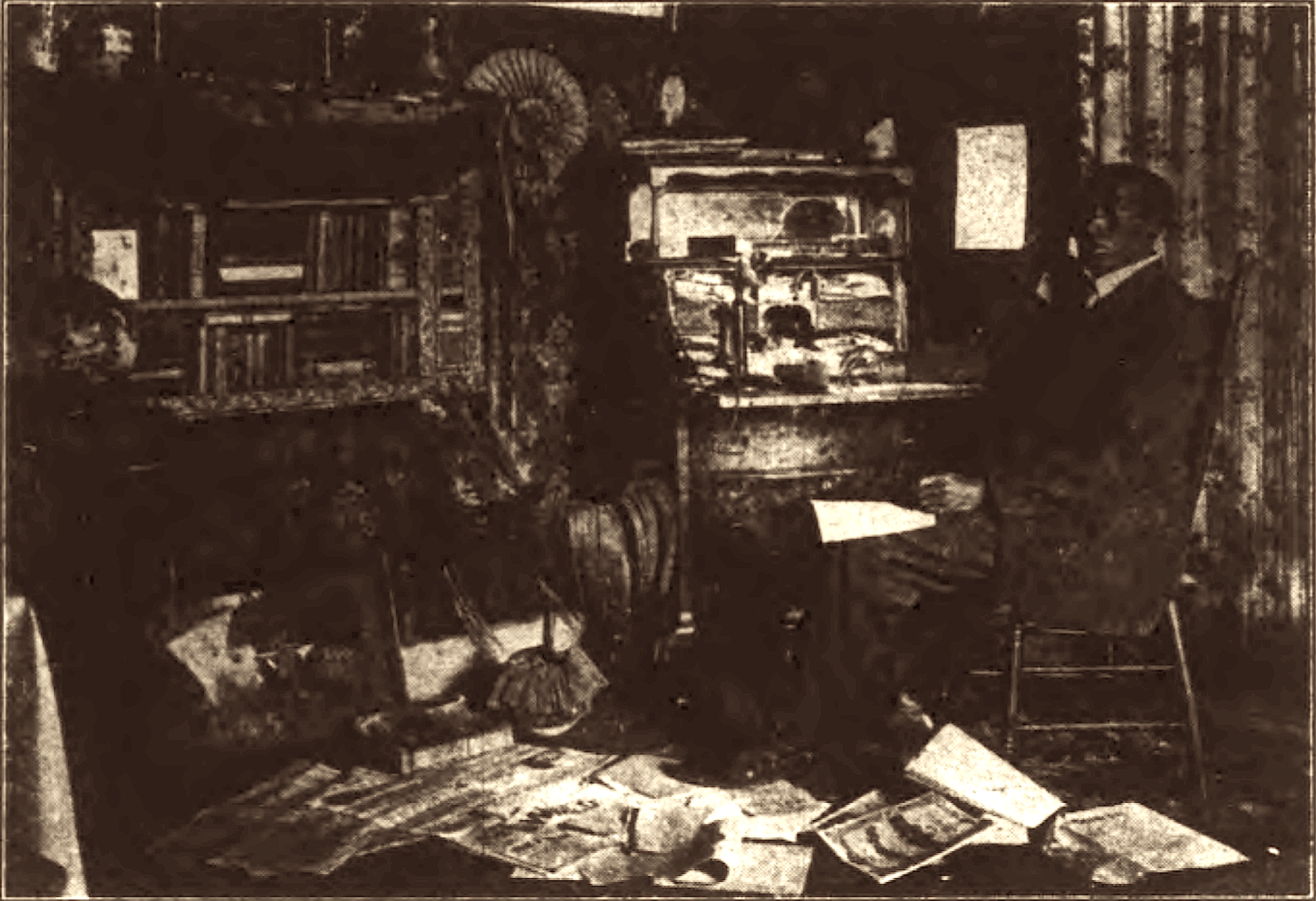(Apr. 5, 1873-Jan. 26, 1929). Aaron Belford Thompson was born in Rossmoyne, Ohio, to John Henry and Clara Jane Thompson, who had been born enslaved in the 1850s. Soon after the birth of their first son Garland in 1863, the couple fled from Kentucky to Cincinnati, Ohio, via the Underground Railroad, finding refuge at the farm of John Schenck.
The Thompsons raised their five children on acreage Schenck sold to them. They valued education and immersed their family in the arts. Of the five children, Thompson and his sisters Priscilla Jane and Clara Ann displayed a talent for writing poetry. All three wrote about African American empowerment.
Unable to make poetry writing a full-time career, Aaron Belford Thompson worked as a janitor in Rossmoyne Public Schools while continuing to hone his writing skills. He and his sisters would perform their poetry in churches and schools.

Because the family owned a printing press, Thompson learned how to typeset his work. This skill allowed him to self-publish two books of poetry, Morning Songs in 1899 and Echoes of Spring in 1900.
Shortly after publishing his second book of poetry, Thompson moved to Indianapolis. He married Luella Dudley in June 1902. The couple moved to the west side of Indianapolis, where Thompson worked at the American Car and Foundry Company. He also advertised his services as a poetry reader and printing-press operator. Again, he self-published a book of poetry called Harvest of Thoughts in 1907.
This compilation of poems received local acclaim. The and artist provided the illustrations and poet wrote the foreward for the book. Riley went on to compare Thompson to Paul Laurence Dunbar, the first African American poet to receive national recognition.
In Harvest of Thoughts, Thompson tackled the challenges African Americans faced during Emancipation. He included comedic poems about the foodscapes of the African American South to lighten the tone of his book. For example, one poem argues the case for eating possums rather than turkey for Thanksgiving.
Riley’s endorsement of Thompson’s talent as a poet did not bring him the national attention he needed for him to turn his craft into a full-time endeavor. However, poetry readings at African American venues became a way for Thompson to continue his passion and share his work with the Black community. He and his sister Clara Ann, who also received acclaim for her poetry, recited their works at the in 1907 and at a year later.
In March 1922, Thompson’s wife Luella died of influenza, and he married Hallie Words seven months later. Thompson continued to self-publish and take on odd jobs until his death from cardiac disease in 1929. He is buried in a shared grave with his siblings in Rossmoyne, Ohio.
Almost 100 years later, in 2021, Hastings College Press published The Rossmoyne Renaissance, an anthology of poems Thompson and his sisters Priscila Jane and Clara Ann wrote during their lifetimes.

Help improve this entry
Contribute information, offer corrections, suggest images.
You can also recommend new entries related to this topic.